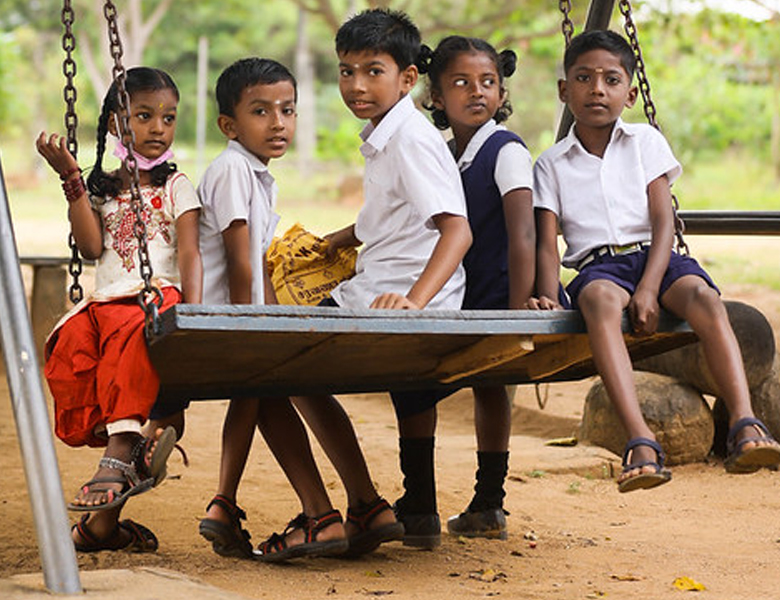
For the rural poor of Tamil Nadu, India, access to educational resources is often financially untenable. Fees for books, uniforms, transportation, and food are difficult for households to afford, particularly in support of what many families consider to be a long-term investment with abstract benefits. Presented with these considerations, the farmers and bricklayers of Kurumbupalayam village often choose to keep their children home to help with work and generate income.
This project with BGR partner Lotus Outreach International provides nutritional support for students and staff members at the Garden of Peace school, located on a 5.6-acre organic farm just outside of Kurumbupalayam. BGR support funds two nutritious daily meals and a healthy snack for all students. The nutritional component is fundamental to the school’s identity, as the facilities are situated on an organic farm. The students and their parents are involved in farm activities, helping to grow a portion of the food served to the students. This year, the school expects to serve 225–250 children, in addition to teachers and community volunteers.

For the rural poor of Tamil Nadu, India, access to educational resources is often financially untenable. Fees for books, uniforms, transportation, and food are difficult for households to afford, particularly in support of what many families consider to be a long-term investment with abstract benefits. Presented with these considerations, the farmers and bricklayers of Kurumbupalayam village often choose to keep their children home to help with work and generate income.
This project with BGR partner Lotus Outreach International provides nutritional support for students and staff members at the Garden of Peace school, located on a 5.6-acre organic farm just outside of Kurumbupalayam. BGR support funds two nutritious daily meals and a healthy snack for all students. The nutritional component is fundamental to the school’s identity, as the facilities are situated on an organic farm. The students and their parents are involved in farm activities, helping to grow a portion of the food served to the students. This year, the school expects to serve 225–250 children, in addition to teachers and community volunteers.




